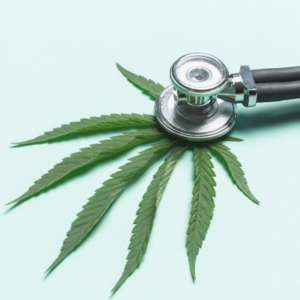How To Talk To Your Doctor About Medical Marijuana
 A New England Journal Of Medicine poll of doctors showed that 76 percent actually favored the use of medical cannabis. This has opened the door for many patients to feel comfortable approaching their doctors about whether Medical Marijuana is the right choice for them. In the past, these conversations may have been intimidating and confusing. However more study into the benefits of marijuana and cannabis along with real results from patients, has shown the medical benefit and pain management that cannabis can provide.
A New England Journal Of Medicine poll of doctors showed that 76 percent actually favored the use of medical cannabis. This has opened the door for many patients to feel comfortable approaching their doctors about whether Medical Marijuana is the right choice for them. In the past, these conversations may have been intimidating and confusing. However more study into the benefits of marijuana and cannabis along with real results from patients, has shown the medical benefit and pain management that cannabis can provide.
Patient-doctor relationships thrive on honesty and transparency. Doctors take confidentiality seriously – physicians are bound by law to not divulge personal information or anything discussed with him or her.. Therefore, patients should be upfront about their past history with marijuana, their symptoms as well as their concerns. To book a FREE Consultation for Medical Marijuana, contact us by phone at 1-833-543-3226
Under Florida law, MMJ (Medical Marijuana) may be prescribed to treat the following conditions:
- Cancer – Limited studies suggest Medical Marijuana could kill cancer cells and slow tumor growth, dull pain, as well as control nausea/vomiting caused by chemotherapy
- Chronic pain management – Medical Marijuana dulls pain while helping to relax muscles and help with severe nerve pain
- Post-traumatic stress disorder (PTSD) – Medical Marijuana reduces anxiety and depression
- Multiple sclerosis – relax tight muscles
- HIV/AIDS – Medical Marijuana stimulates the appetite and improves weight gain as well as helps with depression, anxiety and severe nerve pain
- Epilepsy – Some people have had a dramatic drop in seizures with Medical Marijuana
- Parkinson’s disease – Medical Marijuana can be neuroprotective for neuron damage as well as treating bradykinesia and dyskinesia – excess movement
- Amyotrophic lateral sclerosis (ALS) – Medical Marijuana can work as an antioxidant or an anti-inflammatory to slow or prevent further damage to nerve cells
- Crohn’s disease – Medical Marijuana reduces inflammation, provides pain relief and lowers levels of anxiety.
- Glaucoma – Medical Marijuana can reduce intraocular pressure (IOP)
- Any Terminal condition as determined by the Attending Physician
Other conditions that may have been treated with Medical Marijuana include:
Attention Deficit Disorder (ADD) and Attention Deficit Hyperactivity Disorder (ADHD), Alcoholism, Alzheimer’s Disease, Anorexia, any Anxiety Disorders, Cyclical Vomiting, Diabetes, Fibromyalgia, Headaches/Migraines, Hepatitis C, Lupus, Lyme Disease, Opioid Use Disorder & Dependence and Sickle Cell Anemia.
Discussing the need for MMJ helps patients understand their doctor’s viewpoint and whether they agree that a particular condition would be conducive to this type of therapy. Asking a doctor about the varied ways cannabis can be consumed besides smoking – such as edibles, topical ointments and infusions is also important as the doctor is familiar with their patients’ cardiovascular health.
Another issue only a doctor can be aware of is how substances may interact with each other. IE will medications a patient is already on interfere with cannabis. In some cases, one drug cancels out the others effectiveness or, in worse case scenarios, result in unforeseen side effects.
Patients should research ahead of time on their condition and the laws surrounding cannabis and CBD before their appointment. Patients should also expand that research to include how cannabis and CBD might impact them and their symptoms.
A good list of questions to ask a physician are as follows:
- What are the possible side effects? Will Medical Marijuana have dangerous interactions with other medications?
- Will Medical Marijuana make current medications less effective?
- Are there any adverse health effects or complications to be aware of?
- Are there any medical studies that show Cannabis being used to treat other patients with similar conditions?
- What are the associated healthcare costs?
- Will second-hand smoke be a problem?
- What about a pregnant or breastfeeding patient?
- Are there any activities to be avoided while using medical marijuana?
Once a doctor delivers his or her diagnosis, Dr. Fernando Fandiño-Sende at LifeCannMD – Florida’s top-rated Medical Marijuana Referral Clinic – can schedule a private consultation to help the patient understand the healthcare options available to them. Dr. Sende can help patients to drill down and determine what strain of MMJ may be right for them and at what strength for their particular condition. The process is quick and seamless. LifecannMD has served over 5,000 satisfied patients and their recommendations for Medical Marijuana have helped a number of patients out of pain and illness.






